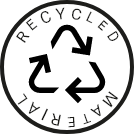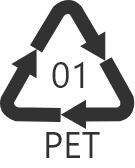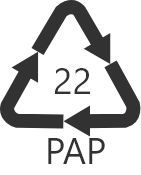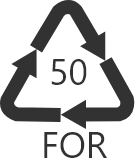CARD MATERIALS
We produce cards and smart cards in plastic, alternative and sustainable materials: PVC and PETG, which have excellent technical properties. We also use degradable and recycled PVC, wood and paperboard, which reduce the environmental impact while maintaining high quality standards. Explore the features and choose the most suitable material for you.
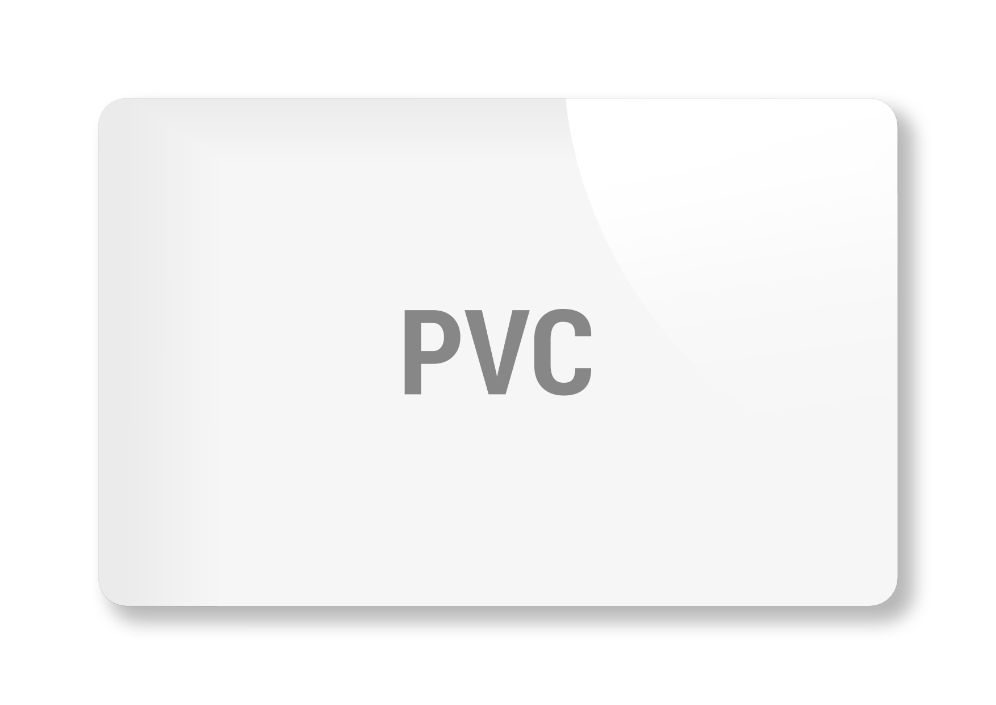

PVC
PVC (polyvinyl chloride) is the most common material used to produce cards. It is flexible, has high temperature resistance and is inexpensive. It can also be laminated.
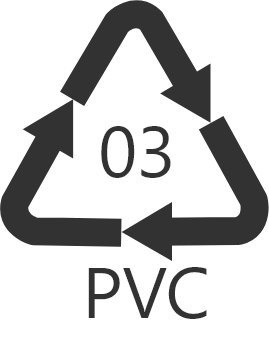
PVC is created by combining sodium chloride — from common table salt — and petroleum — from which ethylene is extracted. It has an operating temperature of -10°C to 62°C.
Customised PVC cards come in two types: single-layer or multi-layer. Single-layer cards are produced from a single sheet of PVC, with no processing other than printing. They are non-ISO cards, since the maximum production thickness is 0.068 mm. This product is used particularly as loyalty cards with barcodes. Multi-layered PVC cards are the most popular. They include cards with chips and/or transponders and credit cards.
PVC badges are compatible with magnetic stripes, barcodes, contact chips and RFID chips. They can be printed using different techniques (offset, silkscreen, laser and inkjet printing).
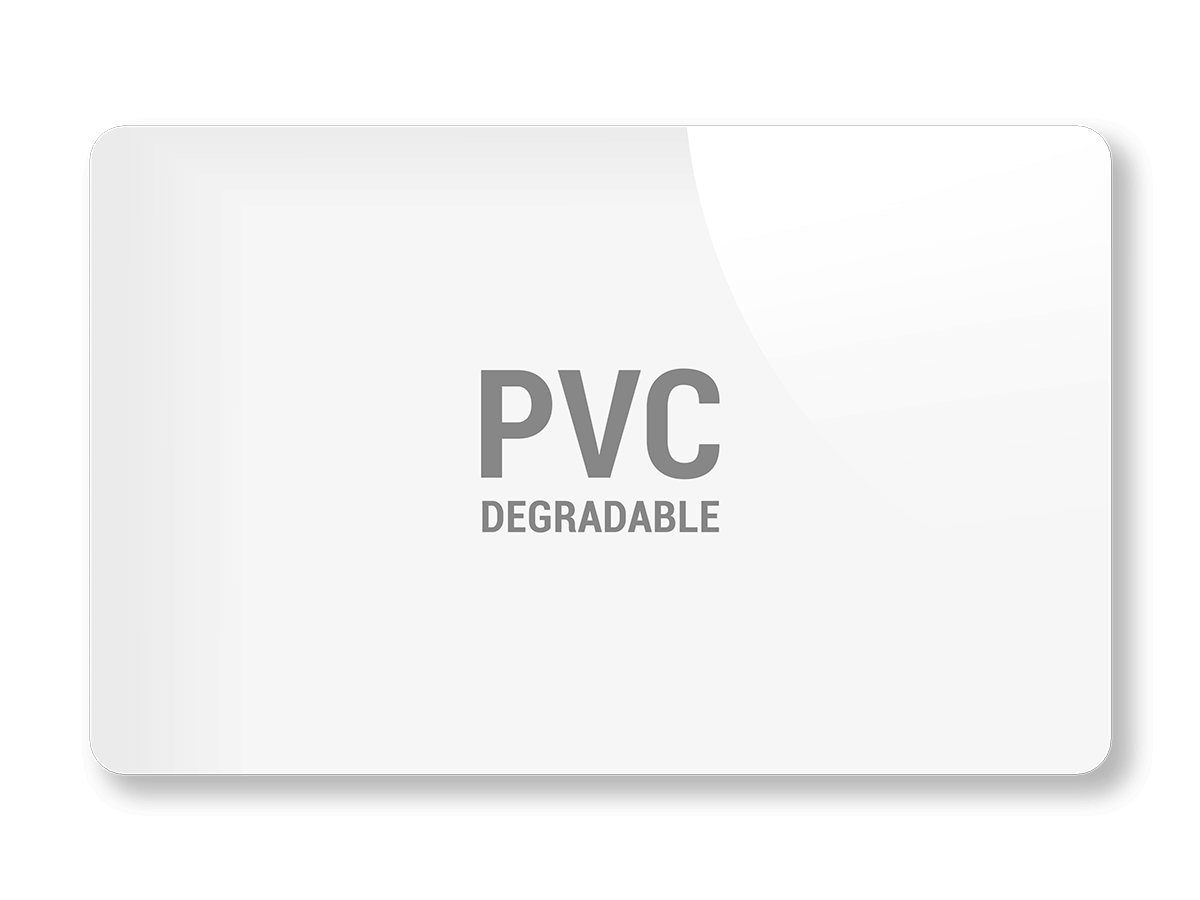

Degradable PVC
Degradable PVC is a more sustainable alternative to standard PVC due to the use of additives that accelerate its decomposition in microbe-rich environments, such as biologically active landfills.

These additives are particularly ‘attractive’ to microorganisms present in waste, such as fungi, bacteria and algae. They recognise these markers and secrete acids that metabolise PVC by breaking the molecular chain and converting the polymer into simple molecules (water, carbon dioxide, methane), biomass and inorganic compounds. From a technical point of view, degradable PVC cards maintain the same features as standard PVC cards, i.e. printability, durability, elasticity, high chemical and temperature resistance, electrical insulation, and water-resistance. However, with the same technical performance, degradable PVC has considerable advantages in terms of environmental impact. It degrades much faster — already in the wet waste and then in landfills — without releasing dioxin or other harmful organochlorine compounds generated in the combustion process.
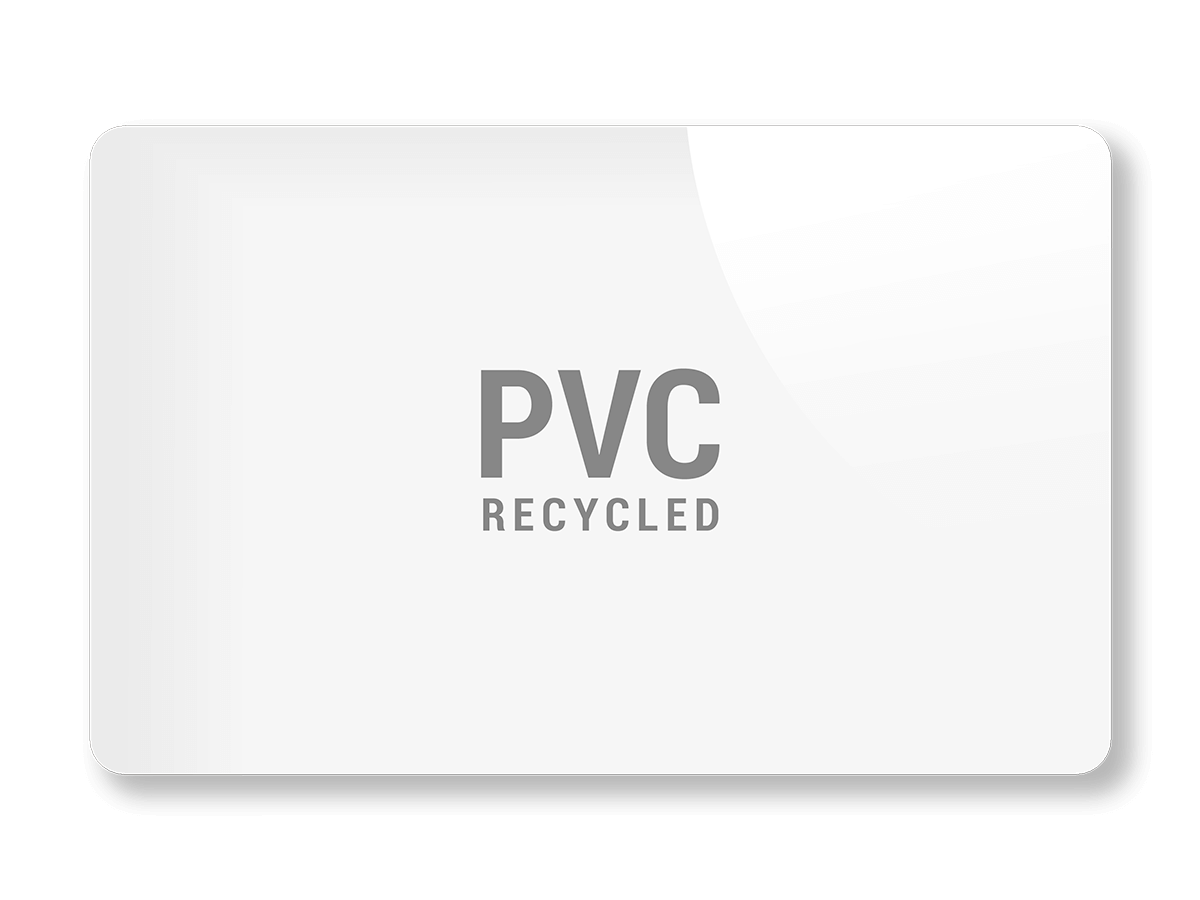

Recycled PVC
Recycled PVC is obtained from PVC scrap. It saves the petrochemical resources and emissions needed to produce the polymer from scratch, and also reduces landfilled waste.
PVC has advanced mechanical recycling properties and can typically be recycled up to 8 times, depending on the application. The recycled material is produced by certified plastic recycling companies, which collect scrap — for example, clippings or defective sheets in the case of cards — from manufacturing companies. This is pure PVC, which is first sorted by colour and characteristics and then completely cleaned of any additives such as magnetic stripes or processing parts, and ground once again. From a technical point of view, recycled PVC cards retain the same features as those made of the standard material.
The European programme VinylPlus, established in 2011 for the sustainable development of PVC, encourages recycling of this material, given the large availability of PVC waste and the significant environmental benefits of its recovery.
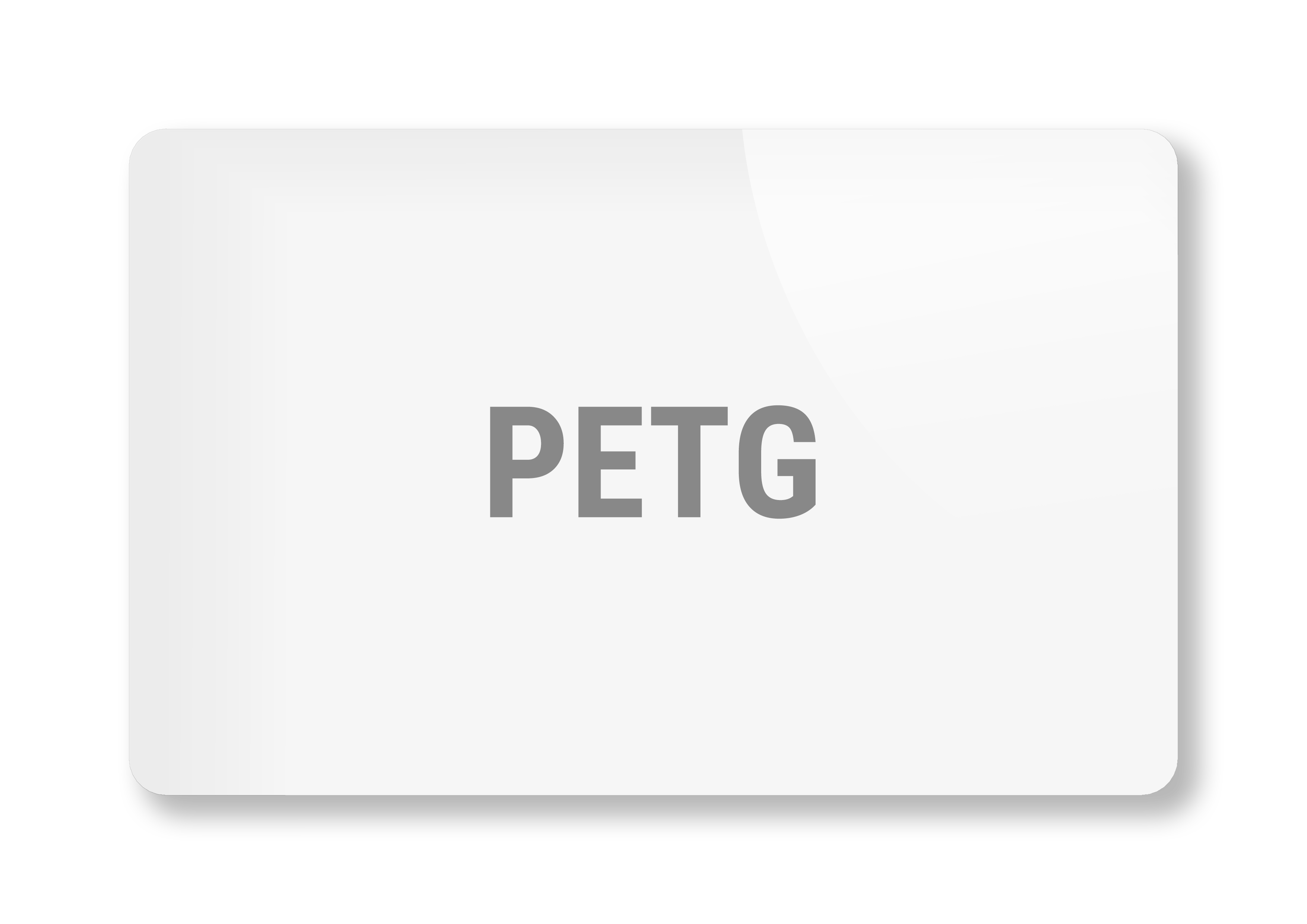

PETG
PET (polyethylene terephthalate) plastic is recognised worldwide as safe, non-toxic, durable, flexible and 100% recyclable. PETG (PET with added glycol) is used to produce the cards.
PETG is used to produce loyalty cards, gift cards and cards for access control. The main characteristics of PETG are its resistance to chemicals, easy lamination, printability with offset and silkscreen printing techniques, and complete recyclability. PETG cards are compatible with the application of magnetic stripes, contact chips and RFID chips, and can be customised using thermographic and inkjet printing. At Partitalia, we also make recycled PETG cards.
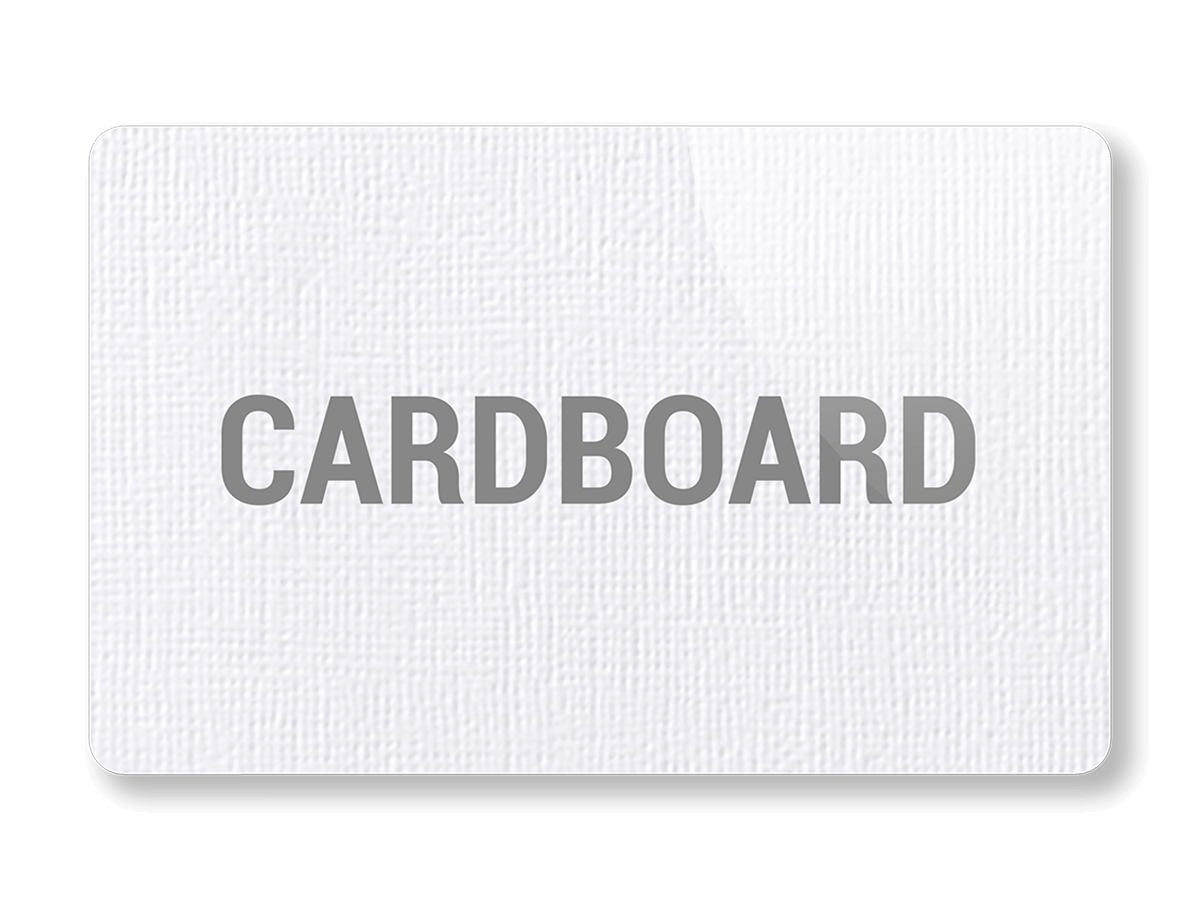

CARDBOARD
Cardboard is made entirely of paper fibre. It is mainly used for gift cards. Fully biodegradable, it has a good degree of compatibility with card-manufacturing processes.
Cardboard features excellent printability using either offset or silkscreen printing. This material is normally used for gift cards. The magnetic stripe can be applied during production, and the product can be customised using inkjet printing.
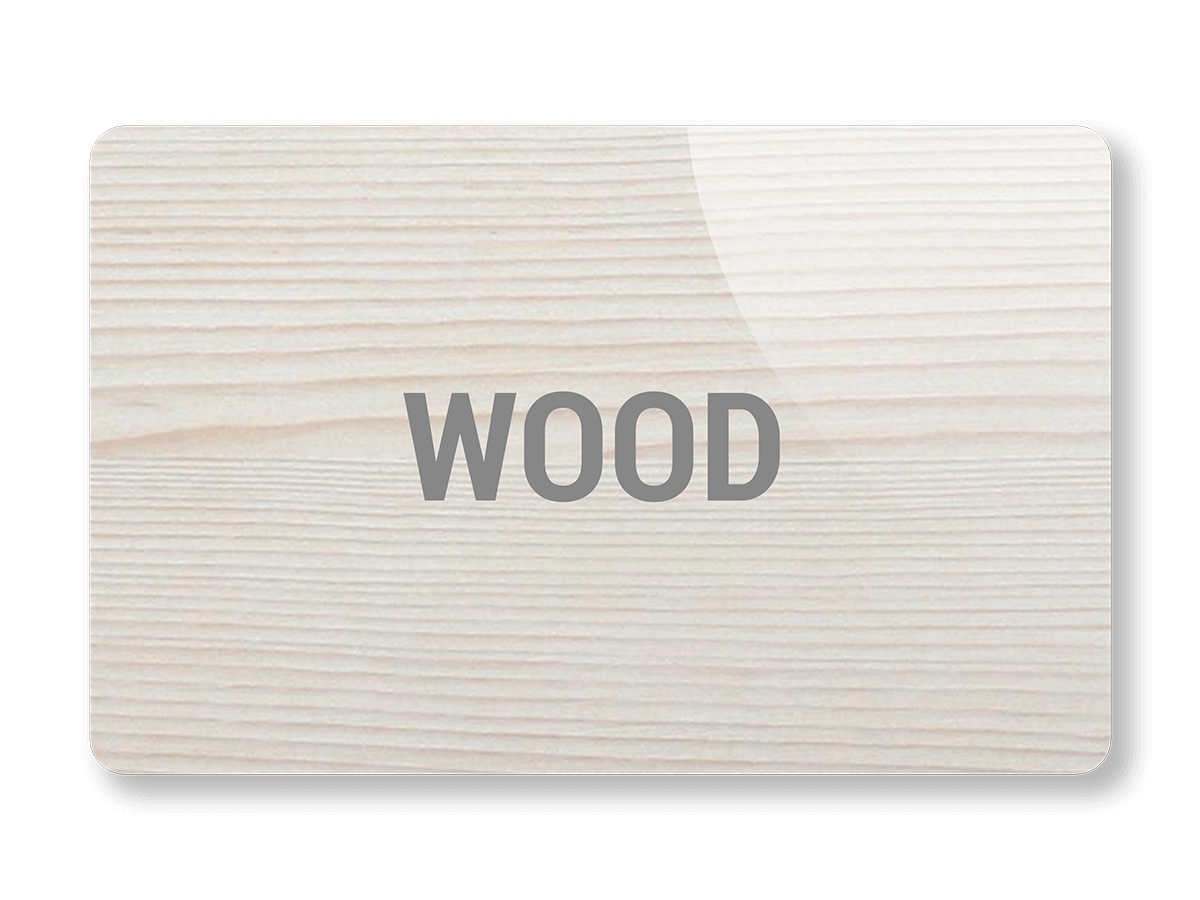

WOOD
Wood is a fully recyclable and biodegradable material. Its mechanical features enable the production of cards and smart cards while maintaining standard thicknesses and dimensions.
Wooden cards can be enhanced technologically with the application of RFID chips for access control. They can be printed using offset, pad and silkscreen printing techniques, and customised using laser or inkjet printing. The most suitable types of wood for these processes are bamboo, lime, maple and cherry, with a wide choice of colours and fibres.


